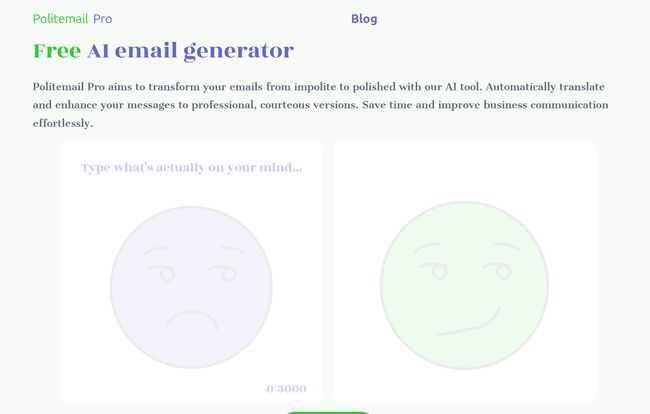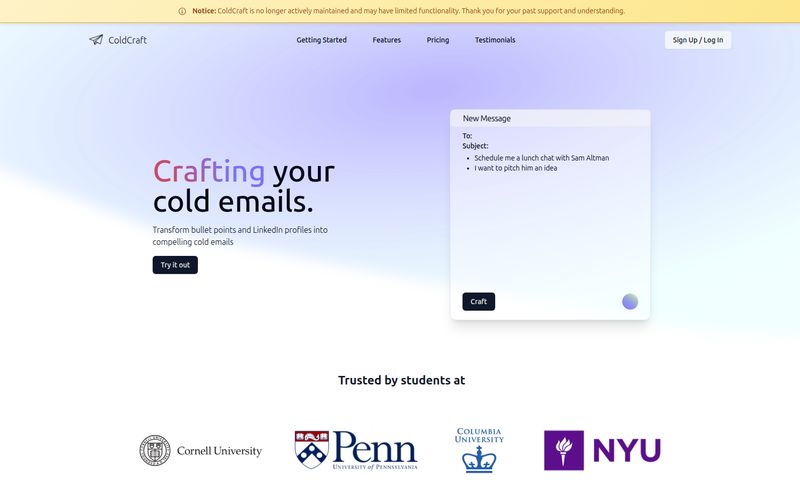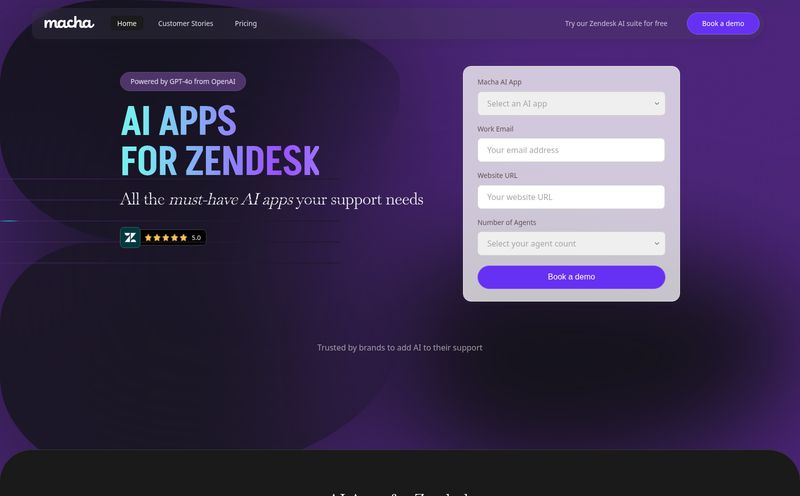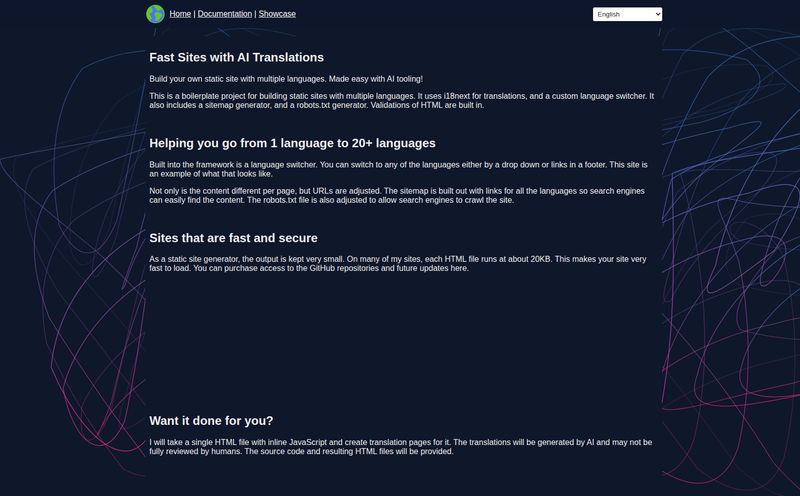We’ve all been there. You’re staring at a draft, your finger hovering over the “Send” button, a little bead of sweat forming. You've re-read the email twelve times. Does “Just checking in” sound passive-aggressive? Is “As per my last email” the corporate equivalent of a slap in the face? It probably is.
In the world of remote work and digital-first business, our emails are our ambassadors. They’re our handshakes, our facial expressions, and our tone of voice all rolled into one. And messing them up can have real consequences—confused clients, irritated colleagues, missed opportunities. It's a low-key, daily anxiety that we just… accept. Or at least, I did.
The High Stakes of a Poorly Worded Message
I remember one time, early in my career, I sent an email to a client that I thought was direct and efficient. The client, however, read it as abrupt and demanding. It took two phone calls and a whole lot of backtracking to smooth things over. All because a few words landed the wrong way. The tone was just... off. It wasn't my intention, but intention doesn't pay the bills.
This is the minefield we navigate every day. We're trying to be clear, but not rude. Firm, but not aggressive. Friendly, but not unprofessional. It's a tightrope walk. And when you’re juggling a dozen other tasks, spending 20 minutes wordsmithing a two-sentence email feels like a colossal waste of time. This is precisely the headache that tools like Politemail Pro are trying to solve.
Meet Your New Digital Diplomat: Politemail Pro
I stumbled upon Politemail Pro recently, and my first thought was, “Okay, another AI writer. Groundbreaking.” I'm a professional skeptic, it's part of the job description. But the focus here isn’t on churning out a 2,000-word blog post (ahem). It's laser-focused on one specific, painful problem: polishing your raw thoughts into professionally courteous emails.
Think of it less as a ghostwriter and more as a communication coach or a digital diplomat that lives in your browser. Its core function is what they call “AI-Driven Paraphrasing.” You dump in your blunt, first-draft thought, and it refines it into something you can confidently send to your boss, your most important client, or that colleague you secretly can't stand.
From Blunt to Brilliant: Seeing Politemail Pro in Action
This is where it gets interesting. The proof is in the pudding, right? The platform shows a few examples that are almost painfully relatable.
Take this classic, panicked message:
Original: “Need report asap. Deadline is today.”
We’ve all sent (or wanted to send) this. Politemail Pro’s AI email writer spins it into:
Polished: “I hope this message finds you well. I noticed there were some issues with the recent report and I need to submit it by the end of the day. Can you please take another look and ensure it’s ready? ...”
See the difference? It goes from a demand to a collaborative request. Or how about handling a customer complaint? Instead of a defensive “Your proof isn’t valid,” it suggests a more empathetic approach like, “Thank you for reaching out... I understand your frustration and I’m here to help.” It’s not just about adding fluff; it’s about strategically de-escalating and preserving the relationship.

Visit Politemail Pro
These before-and-afters are what sold me on the concept. It's a translator, not just for languages, but for tone-deafness. It finds the politest, most professional way to say what you actually mean.
A Deeper Look at the Features
So what else is under the hood? It’s not just a one-trick pony. The platform is built for efficiency in a business context.
More Than Just Good Manners
One of the standout features is the Seamless Multilingual Support. You can apparently write an email in your native language, and the tool will not only translate it into English but also polish it for professional etiquette. For global teams, this is huge. It removes a massive barrier to clear communication.
There's also the ability to Elevate Your Email Tone. This means you can guide the AI to adjust for different situations—whether you need to express dissatisfaction, offer a compliment, or just be direct without being a jerk. It’s about having granular control over how your message is perceived.
Efficiency is the Name of the Game
Let's be honest, the main currency for any professional is time. The promise of 1-Minute Emails is mighty appealing. The idea is that instead of agonizing over phrasing, you can just type a short prompt, and the AI email generator creates a complete, polished draft. For routine communications, I can see this being a massive time-saver. The interface is also incredibly straightforward—the website boasts “No Learning Curve,” and from what I can see, it looks like a simple copy-paste-and-go operation. Simple is good. Simple means people will actually use it.
The Human Touch vs. The AI Polish
Okay, let's address the elephant in the room. Does using a tool like this make your communication inauthentic? Some might argue that relying on AI strips your personality from your writing. And that's a valid concern. You don’t want to sound like a perfectly polite, soulless robot.
But here’s my take: Politemail Pro seems best used as a safety net, not a replacement for your brain. It’s for those moments when you're angry, rushed, or just unsure. It’s a tool to check your tone and make sure your raw emotion doesn’t accidentally torpedo a relationship. In my experience, the bigger risk in business isn't sounding too polite; it's being unintentionally abrasive and causing a problem you then have to spend hours fixing. I’d rather sound a tiny bit formal than accidentally start an office feud.
What's the Damage? A Look at Pricing
So, how much does this communication magic cost? This is one area where the website is a bit coy. There isn't a big, bold pricing table front and center. I couldn’t find a dedicated pricing page from the main site, which is a bit of a pet peeve of mine. However, they do mention “Free Business Email Tools,” which suggests there’s likely a free tier or a trial to let you get your feet wet. For a tool like this, a freemium model makes a ton of sense. Let people fix a few of their cringiest emails, see the value, and then offer more advanced features for a subscription. I'd expect a paid plan for heavy users or teams.
Frequently Asked Questions About Politemail Pro
I dug around and found some common questions people might have. Here are some quick answers in my own words.
How can I improve my business email skills?
Honestly, practice and feedback are your best bet. But a tool like Politemail Pro acts as a great training wheel. By seeing how it rephrases your thoughts, you start to internalize what good, professional communication looks like. It can help you spot your own bad habits.
What is an AI email writer, and how does it work?
It's a program that uses artificial intelligence to generate or refine text for emails. You give it a prompt—a few words, a rough draft—and it uses its massive database of language patterns to produce a well-structured, grammatically correct, and tone-appropriate email. It's like having a writing assistant on call 24/7.
Can I use your email generator for free?
It appears so. The site mentions free tools, which most likely means there's a free version with certain limitations, like a daily cap on the number of emails you can polish. This is pretty standard for SaaS tools.
What's the difference between a professional email writer and an email rewriter?
A writer starts from a blank slate, taking your prompt and creating a full email. A rewriter (or paraphraser) takes your existing draft and improves it—fixing grammar, changing the tone, and improving clarity. Politemail Pro seems to do both, depending on how much input you give it.
Is Politemail Pro Worth It? My Final Thoughts
In a world saturated with AI tools that promise to do everything, there's something refreshing about a platform that does one thing really well. Politemail Pro isn't trying to write your next novel. It’s trying to keep you from getting into trouble with your next email.
For busy professionals, non-native English speakers, or frankly, anyone who's ever felt that pang of email anxiety, this tool seems like a genuinely useful addition to the digital toolkit. It's a modern solution to a modern problem, offering a quick, easy way to build better relationships and communicate more effectively. And in business, that's never a bad investment.



